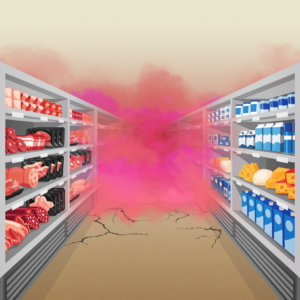Fast fashion should be honest with consumers about plastics
Nusa Urbancic – The Changing Markets Foundation London EC2, UK
Published on 20 August 2021, Financial Times: https://www.ft.com/content/1c63c88b-4db5-49ef-b21c-5bb4f16fdf14
In the article “Recycled plastic is the height of fashion but has a hidden price tag” (FT Weekend, August 14), you rightly point out a key catch in this recent sustainability trend: despite sounding great, recycled plastic in clothes is a one-way ticket to landfill or incineration and it does not solve other problems, such as microplastic pollution. Therefore, it is concerning that this is one of the key responses to sustainability that fashion brands and their voluntary initiatives resort to.
The Changing Markets Foundation reached out to 46 of the most transparent fashion brands with a questionnaire.
The responses show that 85 per cent of companies aim to achieve their “recycled” content targets by using polyester from “downcycled” PET bottles — that is materials that are less structurally strong and can only be used once, usually for lower quality applications.
On the other hand, none of the brands has a clear plan to move towards fibre-to-fibre recycling and their investments in true circular economy solutions are minuscule.
Greenwashing was rampant across the targets the brands disclosed, including claims of using “sustainable”, “preferred”, “sustainably sourced” or “sustainably made” materials, the criteria for which were often ill-defined and constitute unsubstantiated claims that mislead consumers.
At the same time, the use of virgin synthetic fibres in the sector has grown exponentially, and the use of polyester has more than doubled over the last 20 years. It is time to critically rethink the plastic problem so inherently linked with the fast fashion business model and stop relying on sticking-plaster solutions, like r-PET from downcycled waste of another sector.
Nusa Urbancic – The Changing Markets Foundation London EC2, UK
You might also like...

Running Latte: Slow Progress on Methane in the Dairy and Coffee Industry
An assessment of 20 of the world’s largest dairy and coffee companies, with combined revenues of over $420 billion, finds that most lack methane targets, credible action plans, or basic transparency around t...

“Clean Up on Aisle 3”: The methane mess supermarkets are hiding
New analysis finds twenty of the world's biggest food retailers fail to get to grips with massive methane emissions in their supply chains, despite meat and dairy making up an estimated one third of their to...

Dairytales: Arla’s smokescreen for its lack of climate action
As the world's fifth largest dairy producer, Arla has been selling a dairy fairytale of sustainability to continue to escape climate sanctions while prioritising false solutions that further industrialisatio...